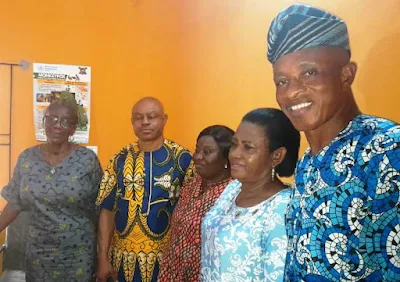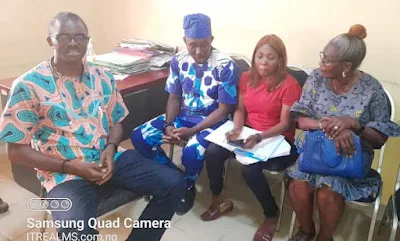 |
Washing hands with simple “tippy taps,” made with easily-available supplies,
and soap or ash reduces the spread of disease. |
Nafisatu Yunusa is excited about change. The 23 year-old
mother of three lives in Marafa, a village of just over 600 people in Bauchi
State, northern Nigeria, where the dry winter season can be hard. Red dust
clouds the sky, vegetation turns brown, and there's no rain for months.
Like other rural communities in the region, for a
long time, many people in the village of Marafa did not have access to running
water or toilets. Without them, open defecation was the norm. Most households had
lost at least one family member to preventable diseases such as cholera and
typhoid.
Fields and villages were contaminated with feces,
which was not only unsightly and malodorous, but was also extremely unsanitary.
“Back then, our children were always suffering from diarrhea, typhoid fever,
cholera," Nafisatu explains. "It was the biggest challenge we
had, it was everywhere."
Information
about stopping open defecation has helped to make the village a more
attractive – and healthier place to live.
|
But the establishment of a Water, Sanitation and
Hygiene Committee, or WASHCOM, in her village, has transformed Nafisatu's life.
The WASHCOMS have been set up in communities in the area under UNICEF’s SHAWN
(Sanitation Hygiene and Water in Nigeria) programme, which is funded by the
United Kingdom’s Department for International Development (DFID).
Nafisatu works as a treasurer for the WASHCOM and
is one of the nine Mafara WASHCOM members who have been trained to teach
healthy sanitation practices to others in the community. “Now when a child goes
to use the toilet he or she comes and washes hands – with soap, if it is available,
or ash,” she says, “and that has contributed a lot to stopping the spread of
diseases." As a result, Marafa has become one of 351 communities
that are now certified as “open defecation free” in the Local Government Area
of Dass, in Bauchi state. Every household in the community has a latrine and
nearby hand washing facilities.
And the SHAWN programme has rewarded the community with a borehole and
hand pump, so that water is now easier to access, even in the dry season.
The
United Kingdom’s DFID supported this UNICEF project.
|
The improved sanitation and easy access to water,
says Nafisatu, has not only saved lives, but it also helped ease a common
strain on marriages in Marafa. Among the good hygiene practices they have been
trained to teach, WASHCOM hygiene promotion team members have shared their
knowledge with women community members about menstrual hygiene management.
When
water is easily available, good hygiene practices are also easier to
implement.
|
Nafisatu recalls that women in the village used
to stuff dirty menstrual padding under their beds, which often made the bedrooms
smell unpleasant. Their husbands, recounts Nafisatu, would burn spirals of
mosquito coils, hoping the acrid smoke would cover the smell. But sometimes,
even that wasn’t enough, and Nafisatu said that several husbands even refused
to sleep with their wives.
Now that there is water in the village, and with women having learned about
better menstrual hygiene practices, that problem has vanished. “The change
has been so overwhelming,” says Nafisatu with a smile, “relationships are much improved!”
 |
23 year-old
Nafisatu Yunusa trains her community members
on good hygiene and sanitation
practices.
|
Photo credit for all
pictures: UNICEF/Nigeria/2017/Stefan Heunis
... Linking agrobiz, sustainable environs, people & technology










